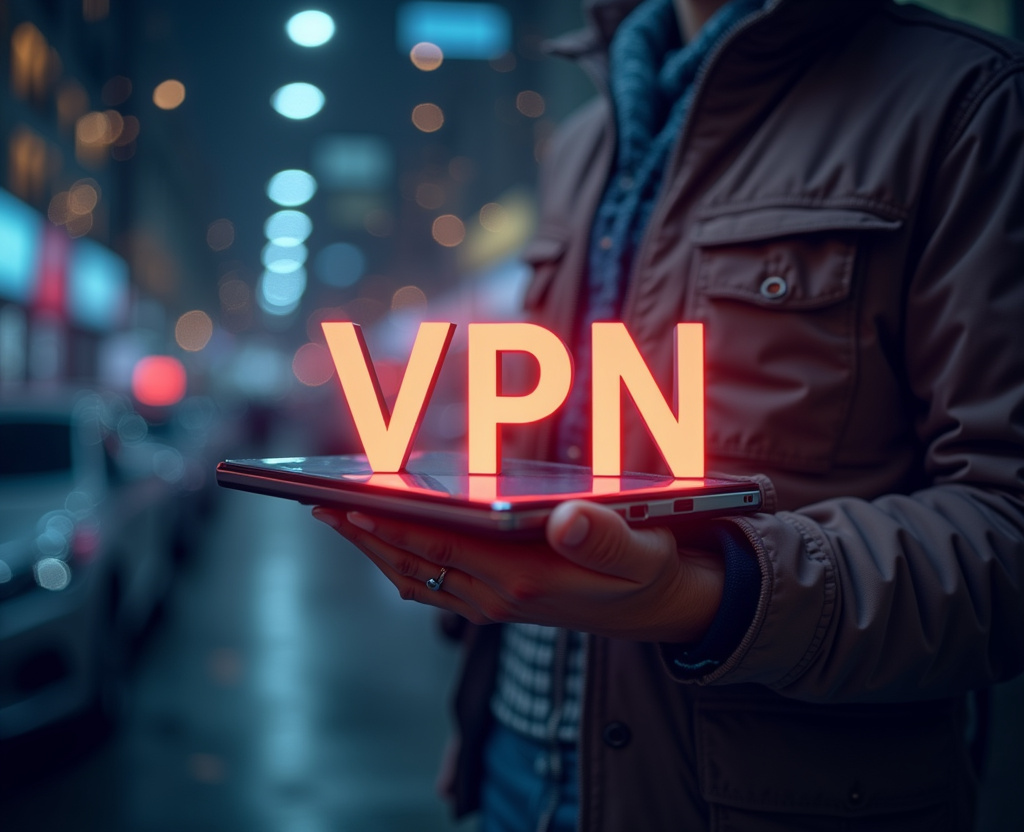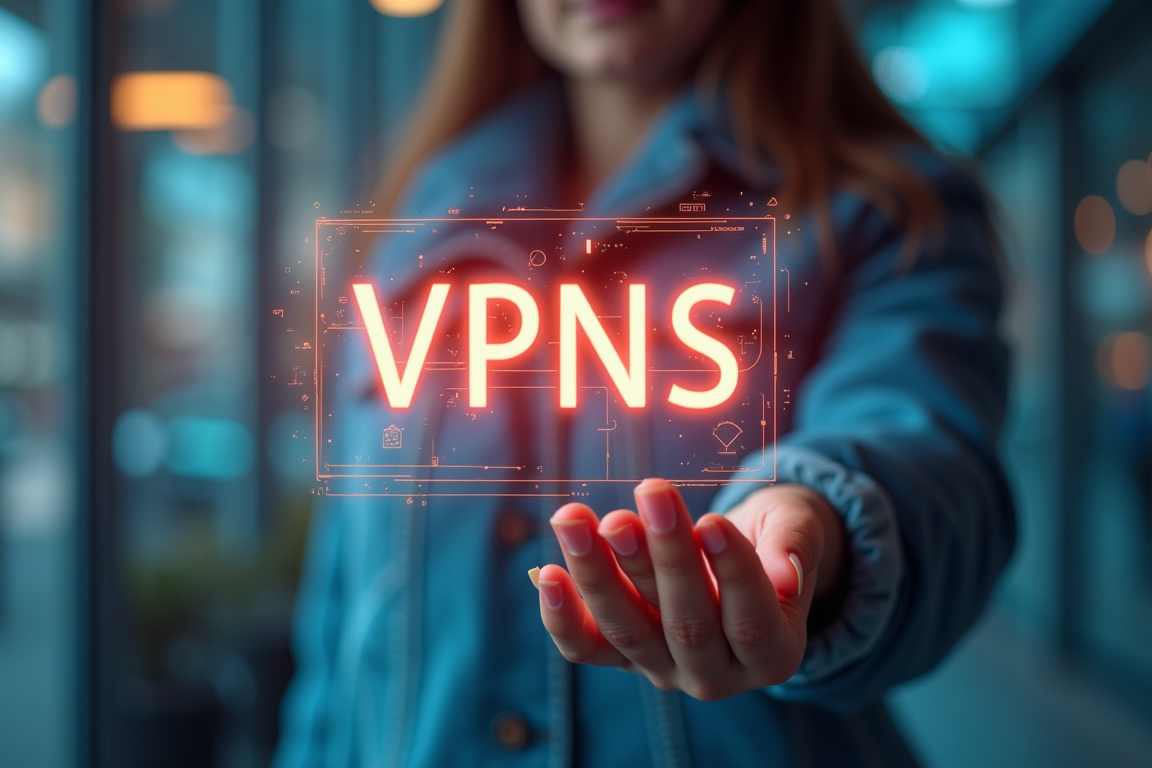VPNs for Lifestyle Brands: Ensuring E-Commerce Security

Table of Contents
E-Commerce Security Imperatives for Lifestyle Brands
In today's rapidly evolving digital marketplace, lifestyle brands face a unique challenge: how to cultivate an engaging online presence that resonates with their target audience while simultaneously ensuring the robust security of their e-commerce operations. The modern consumer increasingly expects a seamless and secure online shopping experience, and a failure to deliver on this expectation can have severe consequences, ranging from customer attrition to irreparable damage to brand reputation. This article delves into the critical role that Virtual Private Networks (VPNs) play in bolstering e-commerce security for lifestyle brands.
We will explore how VPNs can safeguard sensitive customer data, ensure the integrity of online transactions, foster a secure online environment, and ultimately, build lasting customer relationships. For lifestyle brands, a strong sense of community and brand loyalty are often central to their success. A security breach can shatter this trust, making the implementation of robust security measures like VPNs not just a technological upgrade, but a strategic imperative.
The escalating sophistication of cyber threats demands a proactive and multi-layered approach to e-commerce security that goes beyond traditional firewalls and intrusion detection systems. VPNs provide an indispensable layer of protection by encrypting internet traffic, masking IP addresses, and routing connections through secure servers making it considerably more difficult for cybercriminals to intercept sensitive data or launch targeted attacks. Integrating a VPN into the lifestyle brand's e-commerce strategy should be considered an integral component of an overarching security framework, offering a vital defense against a wide range of cyber threats.
The core of a lifestyle brand is the connection it builds with its audience. This connection is forged on trust, shared values, and a sense of belonging. A data breach can devastate this trust, potentially causing long-term damage to the brand's image and customer base.
Investing in robust e-commerce security, like VPNs, protects not only the brand's financial interests but also its brand reputation. Customer data is a vital asset for lifestyle brands. It provides insights into customer preferences, purchasing behavior, and demographics, which can be used to personalize marketing efforts, tailor product offerings, and enhance the overall customer experience.
The ability to provide that personalized and curated experience is what makes customer loyalty go up. Safeguarding this data transcends legal and ethical obligations; it's a strategic move. VPNs encrypt data transmitted between the customer's device and the e-commerce server, shielding it from unauthorized access.
Encryption converts sensitive information like credit card details, addresses, and personal IDs into an unreadable format, keeping it safe and confidential. This fosters trust among customers and encourages them to continue sharing their information and doing business with the brand. Lifestyle brands that emphasize e-commerce security also gain a competitive edge.
Online shoppers are more aware of the risks involved and are more likely to choose brands that go the extra mile to protect their data. By proactively showing their commitment to e-commerce security, brands can distinguish themselves from competitors and attract customers who value privacy. Demonstrating that a brand is actively protecting its customer's information can show to a customer that a lifestyle brand values them and what they expect from doing business with the brand.
This differentiation can prove valuable in a competitive market, where customers often have several brands to choose from. A strong reputation for e-commerce security can also lead to increased customer loyalty and recurring revenue. If customers feel their data is safe, they are more likely to return to the brand’s website for future purchases, strengthening long-term relationships and driving revenue.
The role of VPNs should be considered when making choices about securing information.
VPN Fundamentals: Protecting E-Commerce Transactions
Beyond data protection, VPNs play a crucial role in upholding transaction integrity, a cornerstone of a trustworthy e-commerce environment. Transaction integrity, in the e-commerce context, refers to the assurance that every online transaction is processed accurately, completely, and without unauthorized modifications. Cybercriminals may attempt to manipulate online transactions to steal funds, alter order details, or redirect shipments to fraudulent addresses.
These malicious activities can result in significant financial losses for both the lifestyle brand and its customers, erode customer trust, and damage the brand's reputation. VPNs significantly mitigate these risks by encrypting all transaction data as it travels between the customer's device and the e-commerce server, ensuring that the data remains secure and unaltered during transmission. This encryption prevents cybercriminals from intercepting and tampering with sensitive transaction information, such as credit card numbers, billing addresses, and shipping details.
By safeguarding transaction integrity, lifestyle brands can ensure that all online transactions are processed accurately and reliably, providing customers with a seamless and secure shopping experience. Furthermore, VPNs can help lifestyle brands prevent chargebacks and fraud-related losses. When cybercriminals successfully manipulate online transactions, customers may dispute the charges with their credit card companies, leading to chargebacks for the brand.
Chargebacks can be costly, not only because of the lost revenue but also because of the associated fees and administrative overhead. By preventing transaction fraud, VPNs can help lifestyle brands reduce chargebacks and improve their bottom line. The enhanced security provided by VPNs also strengthens compliance with industry regulations and data privacy laws.
Many countries and regions have implemented strict regulations governing the collection, storage, and use of personal data. Failure to comply with these regulations can result in hefty fines, legal action, and damage to the brand's reputation. By protecting customer data and ensuring transaction integrity, VPNs help lifestyle brands comply with these regulations and avoid potential penalties.
This proactive approach to compliance demonstrates a commitment to data privacy and builds trust with customers. Choosing the appropriate VPN solution for a lifestyle brand demands a thorough evaluation of several factors, including the brand's specific security requirements, budgetary constraints, and technical expertise. It is essential to select a VPN provider that offers robust encryption protocols, a geographically diverse network of servers, and a stringent no-logs policy.
Robust encryption protocols, such as AES-256, ensure that all data is securely encrypted and protected from unauthorized access. A geographically diverse network of servers allows customers to connect to servers in different locations, masking their IP addresses and further enhancing their privacy. A no-logs policy ensures that the VPN provider does not track or store any user data, providing an additional layer of privacy and security.
Furthermore, lifestyle brands should consider the scalability of the VPN solution to accommodate future growth and evolving security threats. The selected VPN provider should offer flexible pricing plans and the ability to easily add or remove users as needed. Excellent customer support is also essential, providing timely assistance with any technical issues or questions that may arise.
Integrating a new VPN solution into a new or existing e-commerce infrastructure requires careful planning and execution. Lifestyle brands have the option to manage the VPN implementation internally, or outsource the process to a managed security service provider (MSSP). An MSSP brings specialized expertise in e-commerce solutions.
Selecting the Right VPN for Your E-Commerce Needs
The implementation of a VPN is not a one-time event but an ongoing process that requires continuous monitoring, maintenance, and adaptation. Lifestyle brands must establish a robust system for monitoring VPN logs, tracking security incidents, and responding to potential threats. Regular security audits should be conducted to identify any vulnerabilities in the e-commerce infrastructure and ensure that the VPN is properly configured and functioning effectively.
Patch management is also critical, ensuring that all software and systems are up to date with the latest security updates. Furthermore, lifestyle brands should stay informed about the latest cyber threats and adapt their security measures accordingly. The threat landscape is constantly evolving, with cybercriminals developing new and sophisticated methods to exploit vulnerabilities.
By staying informed and proactive, lifestyle brands can continuously improve their e-commerce security and protect themselves from emerging threats. In addition to technical measures, employee training and awareness are essential for maintaining a secure e-commerce environment. Employees should be trained on security best practices, such as how to identify phishing emails, how to protect their passwords, and how to report security incidents.
Regular security awareness training can help employees become more vigilant and reduce the risk of human error, which is often a significant factor in security breaches. Building a security-conscious culture within the organization is crucial for fostering a strong security posture. This involves promoting open communication about security issues, encouraging employees to report suspicious activity, and recognizing and rewarding employees for their security efforts.
A security-conscious culture can help create a shared sense of responsibility for protecting the brand's e-commerce operations. The integration of a VPN solution should be viewed as part of an overall comprehensive e-commerce security strategy. This strategy should encompass a range of measures, including firewalls, intrusion detection systems, vulnerability scanning, and security incident response.
Firewalls act as a barrier between the e-commerce infrastructure and the outside world, blocking unauthorized access attempts. Intrusion detection systems monitor network traffic for malicious activity and alert security personnel to potential attacks. Vulnerability scanning identifies weaknesses in the e-commerce infrastructure, allowing for timely remediation.
A security incident response plan outlines the steps to be taken in the event of a security breach, minimizing damage and ensuring a swift recovery. The implementation of multi-factor authentication (MFA) is another crucial step in enhancing e-commerce security. MFA requires users to provide two or more forms of authentication, such as a password and a one-time code sent to their mobile phone, before granting access to sensitive systems.
MFA makes it significantly more difficult for cybercriminals to gain unauthorized access to e-commerce accounts, even if they have stolen a user's password. Regular penetration testing can help identify vulnerabilities in the e-commerce infrastructure that may not be detected by other security measures. Penetration testing involves simulating real-world attacks to assess the effectiveness of security controls and identify potential weaknesses.
The results of penetration tests can be used to improve security measures and reduce the risk of successful attacks. The benefits of a robust e-commerce security posture extend beyond protecting customer data and ensuring transaction integrity. A strong security posture can enhance brand reputation, increase customer trust, and improve compliance with industry regulations.
Enhancing Subscriber Privacy Through VPN Integration
Furthermore, a secure e-commerce environment can foster innovation and growth. When lifestyle brands feel confident that their e-commerce operations are well protected, they are more likely to invest in new technologies and expand their online offerings. This can lead to increased revenue, improved customer satisfaction, and a stronger competitive position.
A proactive approach to e-commerce security can also help lifestyle brands attract and retain top talent. Security professionals are in high demand, and they are more likely to work for organizations that prioritize security and provide them with the resources they need to succeed. By investing in e-commerce security, lifestyle brands can create a more attractive work environment and attract the best security talent in the industry.
The "lifestyle brand VPN" strategy is an approach to e-commerce security which is tailored specifically to protecting the unique needs and values of a lifestyle brand. The "VPN for retail" considerations must take into account the specific customer base, online presence, and brand identity in order to come up with the most effective security. This type of VPN implementation acknowledges that security needs are not one-size-fits-all and the brand and its customers should be top of mind when designing or implementing new technologies.
Protecting "customer data protection" is a paramount for lifestyle brands because their whole brand often thrives on the intimate connection with consumers. Therefore, it is not enough for lifestyle brands to just have e-commerce security, but the security needs to be built around the customers directly. Ensuring "transaction integrity" is maintained, which is part of a strong lifestyle brand's e-commerce strategy, contributes to a seamless, reliable, and secure end-to-end customer experience.
Customers can shop with the utmost confidence knowing their transactions and payment information will be private and secure. In the context of lifestyle brands, data privacy laws and regulations demand strict adherence, especially as these brands often cultivate a deep connection with their customers, resulting in the collection of detailed personal data. Non-compliance can result in significant penalties and erosion of customer trust.
VPNs aid in adhering to regulations like GDPR and CCPA by ensuring secure data transmission and storage. Choosing a VPN service that aligns with brand values strengthens brand authenticity. For instance, a socially responsible brand might select a VPN provider known for its commitment to environmental sustainability or data privacy advocacy.
Security is a journey, not a destination. Lifestyle brands must continuously assess and adapt their e-commerce security measures to stay ahead of evolving threats. This requires ongoing investment in security technologies, employee training, and security awareness programs.
By adopting a proactive and adaptive approach to e-commerce security, lifestyle brands can protect their customers, their brand, and their bottom line. In conclusion, VPNs are an essential tool for lifestyle brands seeking to enhance their e-commerce security, protect customer data, and ensure transaction integrity. By implementing a robust VPN solution and adopting a comprehensive security strategy, lifestyle brands can foster a secure online environment that builds customer trust, promotes innovation, and drives growth.
The choice to prioritize e-commerce security sends a clear message to customers that their privacy and security are valued, which will allow the brand to stay ahead of their competition.
In an era where digital interactions define brand-customer relationships, the responsibility of lifestyle brands extends beyond offering quality products and services. It encompasses the safeguarding of customer data and ensuring a secure online shopping experience. The implementation of VPNs, strategically aligned with brand values and evolving security landscapes, represents a commitment to building trust and fostering lasting customer relationships.
Emphasizing a "lifestyle brand VPN" strategy can transform a brand's entire image. It demonstrates a commitment to security by proactively addressing customer data concerns through thoughtful protection measures that safeguard online transactions. This helps to build customer trust with the brand's entire image and business model.
As "VPN for retail" continues to evolve, there are new customer data protection mechanisms and other privacy advances. The brand values should be front and center in all decisions when assessing business risk. By tailoring the VPN to customer's needs and the brand values, there is an increased sense of reassurance to customers with the knowledge that the business they are utilizing prioritizes their safety and concerns.
By taking customer's needs and brand values into strong consideration, the business can leverage customer data for more curated experiences. The "customer data protection" mechanism enhances the overall customer experience. Safe access to personal information allows lifestyle brands to gain meaningful experiences to better market to the customer.
In turn, more customized personal shopping experiences helps to build brand loyalty. Emphasizing "transaction integrity" provides peace of mind and bolsters customer loyalty, which is part of providing the brand with a competitive edge. Prioritizing VPN solutions is a reflection of the need to ensure that the data from customers is secure and private.
As lifestyle brands navigate an increasingly digital landscape, the ability to provide robust e-commerce services ensures that transactions are not vulnerable to cyber threats. The adoption of these measures sends a strong message of reassurance to customers. Staying proactive and ready to adapt will become key indicators to success for businesses and brand images to continue to flourish.
Lifestyle brands can succeed by aligning business values with providing security, which can enable businesses to create lasting meaningful connections with customers. This involves making a proactive commitment to protecting data which establishes brand loyalty and fosters trust. Lifestyle brands must be willing to engage and make a positive impact on the consumer.
Through active and adaptive roles in security, businesses can create a secure and engaging environment which promotes innovation and growth. It must start from the beginning by providing an end-to-end plan which assesses the risk and business values, which is the strongest and most effective approach to business success. E-commerce success is much more than transactions, it is about making a relationship with the business values which are front and center.
It is crucial for a business to consider the consumer expectations by meeting them with data protection, transaction integrity, and strong branding. This allows customers to feel that the values and brand provide security, transparency, and a peace of mind. Security and trust are more than just data encryption which makes a positive impact on the brand.
Security is an investment which will promote long-term growth, sustainability, and success for businesses. Ultimately a lifestyle brand can only secure a strong relationship by implementing security measures with the customer in mind.
Stay Updated
Get the latest VPN news, tips, and exclusive deals to your inbox.




